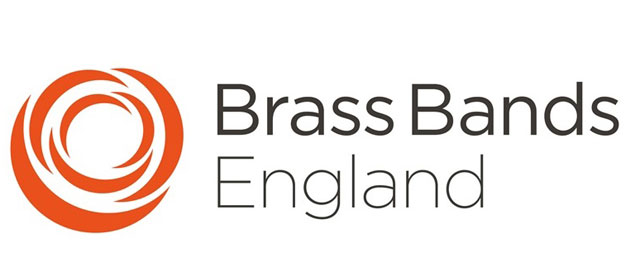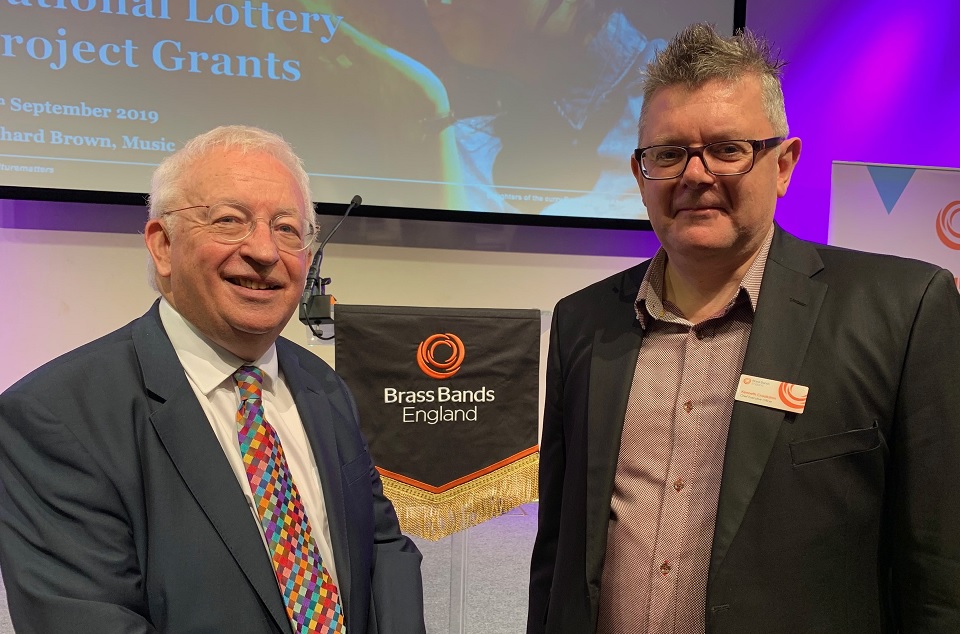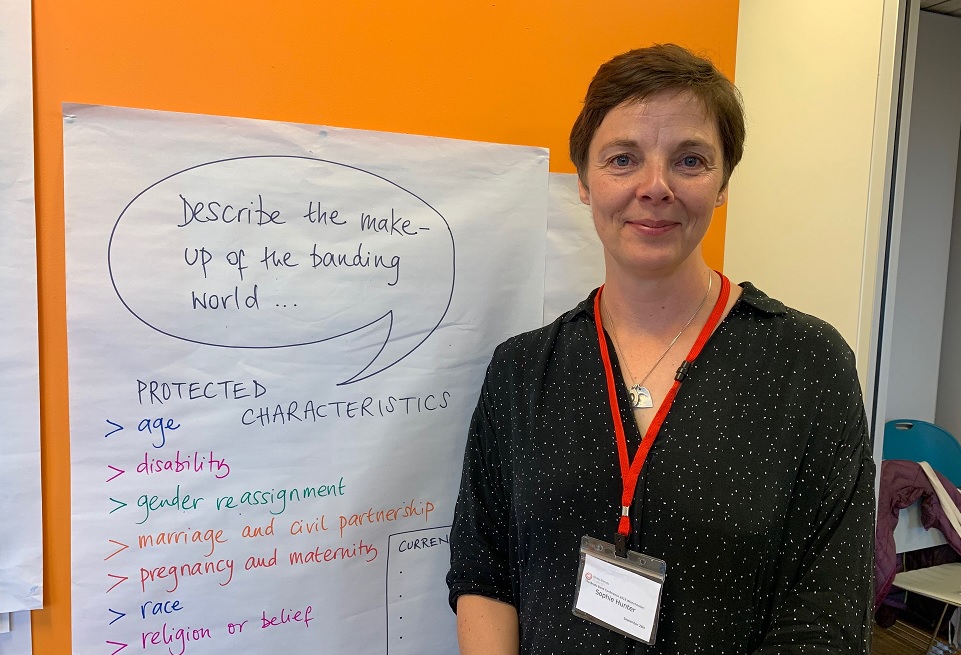
The first Brass Bands England Conference in Sale was marked by plenty of optimism as well as plenty of issues worthy of further discussion and debate.
4BR Editor Iwan Fox picks up on five talking points that emerged...

1. A thick spread of jam
As the results reported at the BBE Annual General Meeting conclusively showed, after the lean years of ‘recovery’, ‘resilience and sustainability’, ‘relevance’ and ‘research and development’, Brass Bands England is now delivering on its ambitious vision statement.
And impressively too.
It has been a long road, occasionally pockmarked by pot holes of their own making, but the end results have fully justified the approach.
The BBE leadership is strong, and the dedicated staff members are inspired by the collective focus on the work that they undertake. As a result membership has increased dramatically.
The Arts Council can look at its £207,000 a year investment and feel that it is getting value for its money.
BBE may still ruffle a few feathers by the way in which it goes about its task, but an organisation that doesn’t do that isn’t doing its job in helping push banding forward into the third decade of the 21st century and beyond.
The promise of jam tomorrow is finally being felt today.
2. Partnership working
One of the key drivers to continued BBE success will surely be a strengthening of the proactive partnership links now established to various sectors of the banding movement.
The ground work has been put in (as was shown by the CEO Kenny Crookston’s report to the AGM) with other national arts and music bodies, private as well as local authority music service providers, contest promoters, service providers and even Parliament.
How this is now built upon will be a key driver for future success, especially in convincing people that BBE does not want to simply take over the control of banding organisations, contests and bodies.
If they can, then everyone benefits.

Edward Gregson with BBE CEO Kenny Crookston
3. Contesting obsession
Edward Gregson had it bang on the money in his keynote Conference speech. We remain obsessed with the minutiae of contesting.
BBE must not become addicted to it too.
The afternoon Panel Discussion, ostensibly on the purpose and structure of contesting, proved his point. It told us everything and nothing.
Focussing on how people of all ages and backgrounds can be attracted to making brass band music in the first place, and how that can be promoted in a positive manner to the outside world, is surely the organisation’s (and banding's) greatest challenge.
Wanting to run contests or change outdated rules is not. Partnership working can sort most of those things out.

The break out initiatives have been a huge success
4. Excellent initiatives
Some of the best examples of partnership working were seen at the Brass Band Conference, where the break-out sessions on Diversity & Inclusion, Creative Funding, Safeguarding & CPL, Copyright, Recording Rights & Distribution and Mental Health showed that BBE was taking a pioneering lead on vitally important issues.
This what BBE has been doing best - giving bands the opportunity to learn about and develop their own approaches - be it on artistic development and player development to Child Performance Licensing.
The long terms benefits of this constructive approach will be huge in the coming decades as brass bands battle to remain a relevant part of the cultural hinterland of local communities.
5. Getting youth involved
Brass bands are still predominately run by middle-aged people with middle-aged attitudes.
It will be the next generation and the one to follow that will determine whether BBE’s work will flourish in the years to come.
BBE has shown the way with its approach (which includes the link to the UniBrass organisation and the rejuvenated National Youth Championships, as well as younger voices in its set-up).
However, it was noticeable that the bands themselves (admittedly on a very small representative sample turn out at the Conference itself) have not yet followed suit.
These are exciting times in many ways, so it would be great to see futures Conferences packed with youthful representation from member bands, discussing, debating and determining the way forward for banding in England and beyond.













